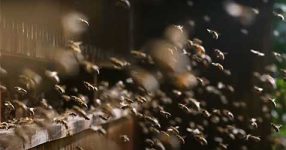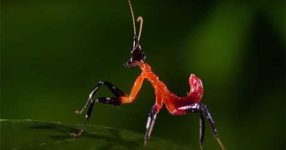The documentary “The Pollinators” provides a captivating glimpse into the intricate world of bees and their pivotal role in our food supply chain. The film opens with a scene of a massive annual migration of bees, highlighting the magnitude of the task faced by beekeepers worldwide. The buzzing activity of bees as they navigate the hives is contrasted with the human efforts to ensure the bees’ timely and safe transportation.
Beekeepers share their awe and fascination with the complexity of beehives, emphasizing the sophisticated communication and chemical signals that keep the colonies functioning harmoniously. The documentary introduces viewers to the scale of the beekeeping industry, particularly in commercial settings, and sheds light on the critical role played by commercial beekeepers in pollinating crops.
The Impact of Agricultural Changes and Pesticides
As the documentary unfolds, it delves into the profound changes in agriculture over the past few decades and their impact on bee populations. The narrative connects the dots between the post-World War II introduction of synthetic chemicals for agricultural use and the subsequent rise of modern insecticides. The film underscores the stakes involved in this chemical warfare against pests, where millions of dollars’ worth of crops are at risk.
The focus then shifts to the alarming decline in bee populations, attributed in part to the changing landscape of agriculture and the use of pesticides. Interviews with experts highlight the role of pesticides in the downturn of bee populations and the significant shift in pesticide types over the last two decades. The documentary raises concerns about the potential consequences of this change and its implications for the delicate balance of pollination.
A Multifaceted Challenge: Varroa Mites, Pesticides, and Viruses
The documentary carefully dissects the multifaceted challenges faced by bee populations, emphasizing the interconnectedness of issues such as Varroa mites, pesticides, and viruses. Beekeepers express their struggle in managing these challenges individually, with the film emphasizing that while bees can cope with one stressor, the simultaneous presence of multiple threats poses a severe risk to their survival.
Expert commentary provides insights into the dynamics of Varroa mites, parasites that weaken bees and make them more susceptible to pesticides. The film suggests that a combination of these stressors is contributing to the decline in bee populations, leading to significant losses for beekeepers who rely on the bees for pollination services.
Regenerative Agriculture as a Solution
In the latter part of the documentary, attention turns towards potential solutions, with a focus on regenerative agriculture. The film introduces viewers to the principles of regenerative farming, emphasizing practices such as minimal soil disturbance, maintaining a living root in the soil, and promoting plant diversity. Interviews with farmers showcase successful examples of regenerative farming, demonstrating healthier soils that support thriving ecosystems.
The documentary concludes by emphasizing the need for a shift in our approach to agriculture, urging viewers to support local farmers and adopt sustainable practices. By doing so, the film suggests, we can create a healthier environment for bees and ensure the continued pollination of our crops. “The Pollinators” serves as a compelling call to action, urging viewers to be mindful of their choices and actively contribute to the well-being of both bees and the environment.












